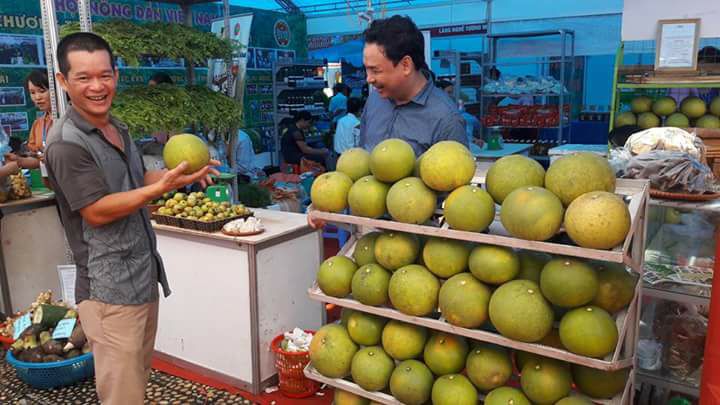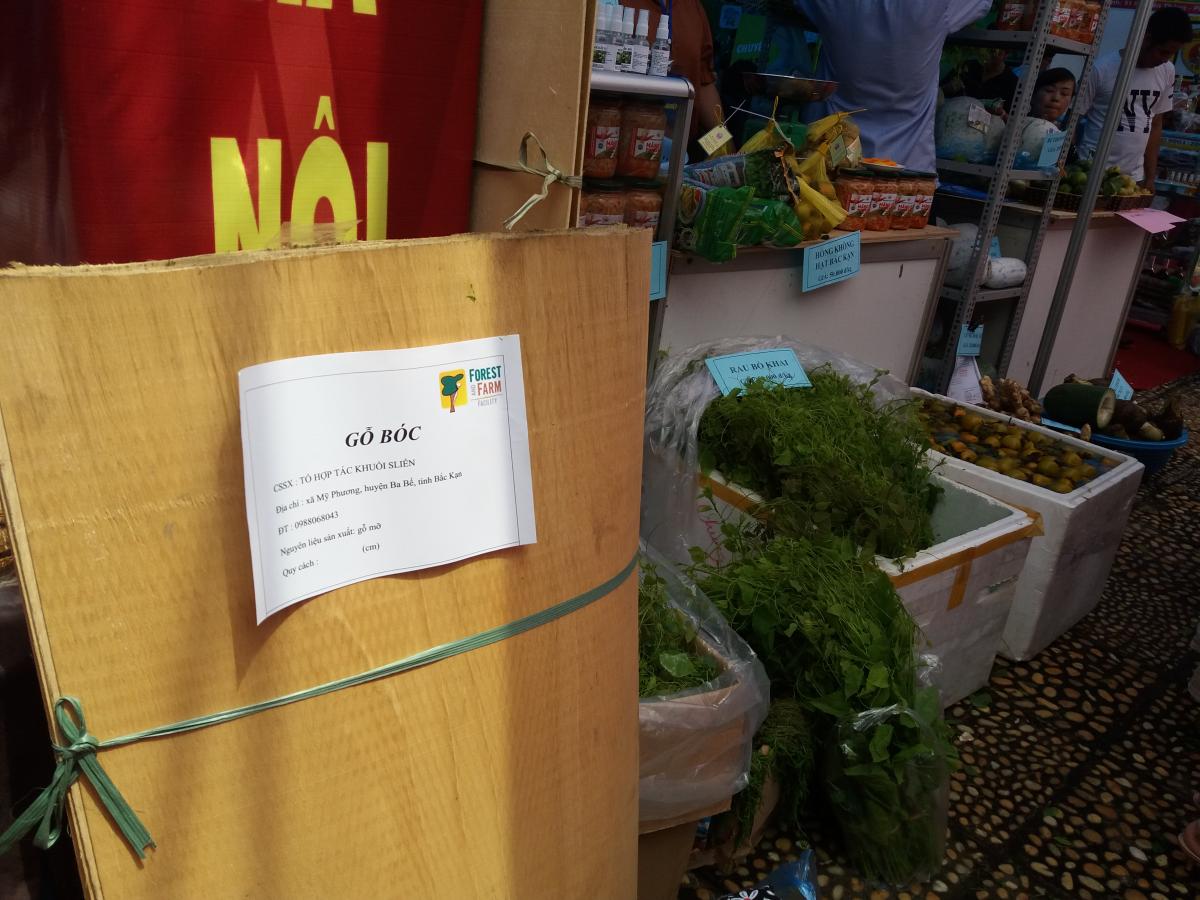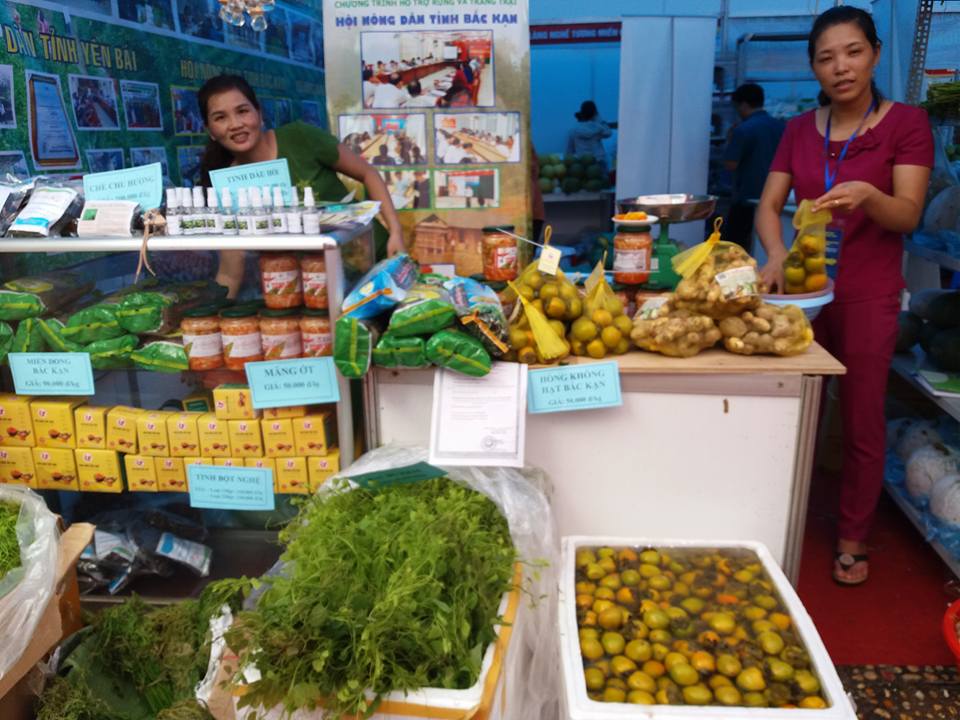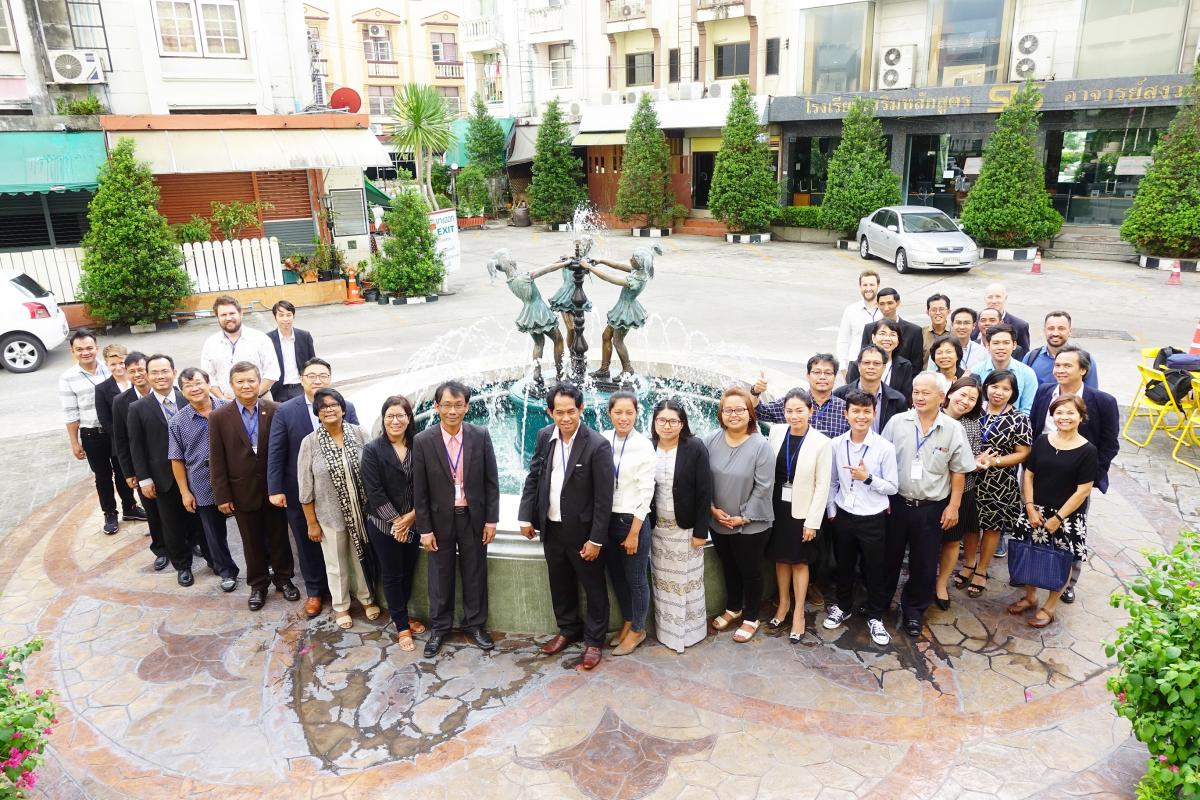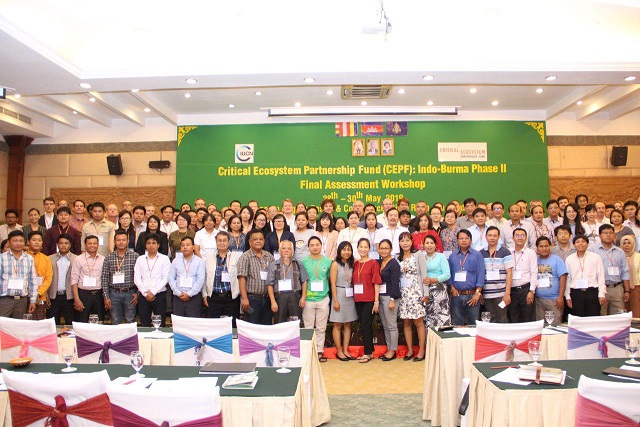Getting big companies to jump start forest and farm producer organizations: the Forest and Farm Facility’s experience in Vietnam
After three years in Vietnam, the Forest and Farm Facility (FFF), a partnership between FAO, IIED and IUCN and implemented by the Vietnam Farmer Union (VNFU), has supported the establishment of 14 smallholder collectives in Yen Bai, Bac Kan, Phu Tho, and Thai Nguyen Provinces. These collectives are producing a range of forest and farm products including timber, cinnamon, star anise oil, tea, and free range chickens.
Collectives (to hop tac in Vietnamese) as defined in Decree No. 151/2007/ND-CP are groups of more than three individuals formed on the basis of cooperative contracts who jointly contribute assets and labor to carry out certain works for mutual benefit and with shared responsibility. Though they can register with the commune people’s committee (CPC), they are not legal entities and can dissolve as soon as the contracts end.
FFF chose to start with collectives rather than cooperatives (Hop tac xa) as individual farmers need time to practice working as a team and to build mutual trust before investing jointly in the business. Operating a cooperative also requires higher level management skills and capital that smallholders lack. Forest and farm producers, especially in remote and mountainous areas, have little formal business experience. Collectives are therefore a stepping stone toward forming more professional organizations.
Creating collectives is much more complicated than just getting the registration forms stamped by the CPC. It requires raising awareness about the benefits of getting organized, building technical production capacity, securing local authority support, and linking with processing and marketing companies.
On August 14-15, 2017 in Yen Bai, FFF organized a workshop to share experience and develop a network between FFF-supported forest and farm producer organizations (FFPOs). Success-factors were identified, including participatory training and peer-to-peer coaching on organizational management and development; building a network of local facilitators drawn from VNFU; frequent dialogue between FFPOs and local government to overcome poor infrastructure, incomplete legal frameworks, and other problems.
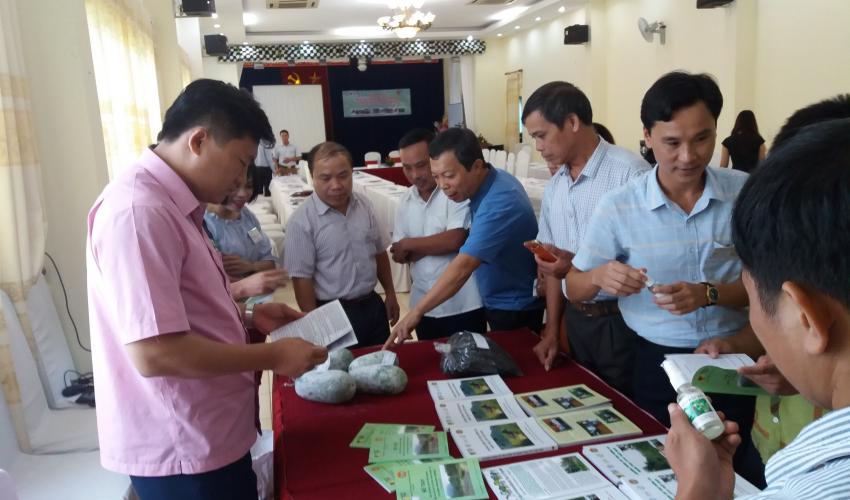 Photo: Participants at experience sharing workshop was organised by FFF © IUCN Viet Nam
Photo: Participants at experience sharing workshop was organised by FFF © IUCN Viet Nam
Forming a collective is not the end of the journey. There is still a long way to go to turn them into well-structured and self-sustained organizations.
At a trade fair in Hanoi in October 2017, 200 collectives, cooperatives, and companies showcased their products. VNFU’s Nguyen Xuan Dinh asked, “If you are just a collective, can you sign contracts directly with the processing company? Can you make your products recognized on the market amid such high competition?”
Of the 14 collectives in Yen Bai, two have developed into cooperatives. The cinnamon groups in Dao Thinh Commune have become the Vietnam Cinnamon-Star Anise Cooperative in April, while the acacia growers group in Lem Village, Phu Thinh Commune is now registered as the Binh Minh Agroforestry Cooperative. These two cooperatives have two things in common: strong leadership skills and the support of large companies that have invested in processing technology and guarantee a market for their products. In the case of the cinnamon cooperative, VINASAMEX, the Viet Nam Star Anise Cinnamon Manufacturing and Exporting Company, is a shareholder in the cooperative, and helped them buy machinery, build workshops, and export to high end markets in Europe and Japan, tasks that smallholders cannot do on their own.
“We thought about developing into a cooperative for years but were very hesitant because we were afraid of what would happen if the cooperative cannot ensure a sustainable market of our products. But after finding VINASAMEX and the company agreed to buy all types of products we make, just after two weeks, we completed all required procedure to register as a cooperative with high consensus from all members”, said Nguyen Tri Tue, vice director of the cooperative.
Meanwhile, the Nam Dinh Forest Products JSC has paid the accreditation fee for the 494 households including members of the acacia group in Phu Thinh to secure FSC certification for 1,700 hectares of forest. It pays a premium of 110,000 dong/m3 for FSC timber and helped the acacia group get an FSC chain of custody certificate for their saw mill. “Previously, many people refused to join our group as they thought it would not benefit them. But now, some of them regret their decision. With frequent orders from Nam Dinh Company and the premium they pay for FSC timber, our saw mill is able to buy round woods for FSC certified households at stable price and provide jobs for local people”, said by Nguyen Dinh Hai, deputy director of the cooperative.
Clearly, the involvement of large companies has catalyzed the development of smallholder organizations, bringing capital, technology, and management skills and ensuring a stable market for their products.
Linking with large companies is a key step in building sustainable FFPOs. But this should go in parallel with building FFPO organizational capacity as companies will prefer to work with strong organizations. “If farmers want to bring their products to high end markets, they need to work in an organization, their products should have high quality and a brand name recognized by the market”, said VNFU’s Ms. Vu Le Y Voan at a workshop on linking FFPOs and markets in Hanoi in September 2017.
Le Thi Thanh Thuy - IUCN Viet Nam
